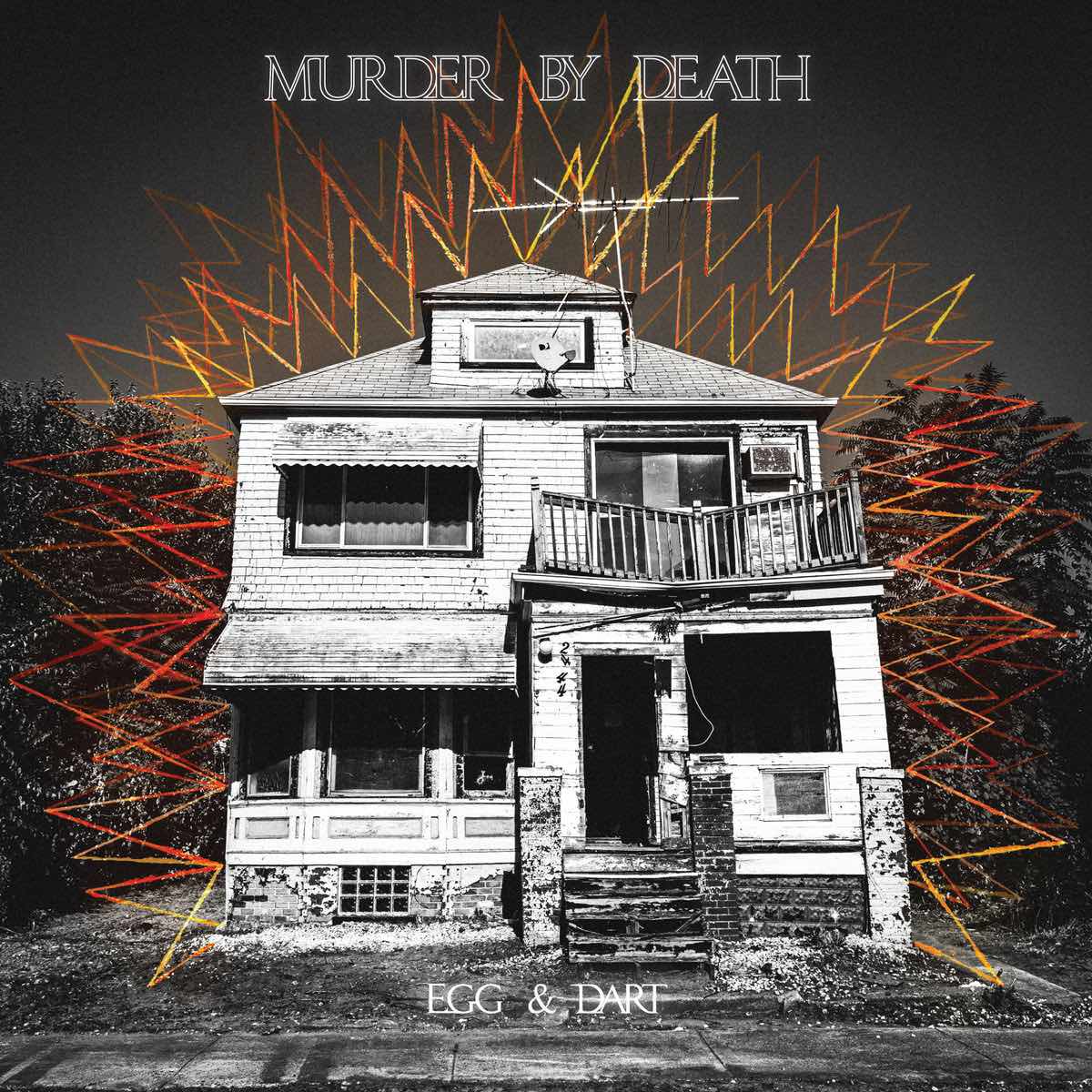Murder by Death
Egg & Dart
SELF-RELEASED
After a quarter of a century, Murder by Death are calling it a day—but not before they first say goodbye. From the moment the Louisville band’s twelfth and final full-length begins with the gentle resignation of “Searcher,” the sense of finality is palpable. It remains throughout all 11 of Egg & Dart’s songs—each one is a requiem, a final farewell, an elegy for what will no longer be. Self-released off the back of a successful Kickstarter campaign, it takes its name from an architectural motif symbolizing life (the egg) and death (the dart/arrow). Tellingly and unsurprisingly, after such a long career, the balance feels very much skewed in favor of the latter.
And while Murder by Death have always been a maudlin, macabre band—their gothic-country-emo-punk-indie rock soundtracking dark, often alcohol-sodden tales of humanity and beyond—their songs have often also been infused with a rage against that dying of the light. Indeed, 2003’s second full-length, Who Will Survive, and What Will Be Left of Them? (your standard concept record about the devil waging war against a Mexican border town) featured guest spots from both Thursday’s Geoff Rickly and My Chemical Romance’s Gerard Way. Two-plus decades on, it feels that fight and resilience is gone.
On the whole, these songs are fully accepting of their fate. It’s a string of goodbyes and letting-gos, each song its own reckoning with an end. There’s “Believe,” a softly gorgeous, string-laden plea for redemption; the gentle lilting loss of “Sorry” (on any other record a perfect bowing out—but not here, where there are 10 other final farewells vying for the same position); and the heart-torn, nostalgic reckoning with mortality of “Lose You,” which, to an almost Cure-esque melody, does try to prolong and fight against the inevitable.
But where once Adam Turla’s voice was graveled and whiskey-soaked—a sort of demonic Johnny Cash—on these songs, it’s soft, sweet, tender, fragile, delicate. On the epic, string-laden penultimate track “If” (“If I loved you, I don’t now,” he implores) it floats mournfully above the rest of the song, searching for a final resting place. It doesn’t find one there, but does succeed on “Black Velvet Cloak.” It’s a song that sounds like it could’ve been written hundreds of years ago, and which bows out in a discordant yet beautiful cacophony of strings. As such, it’s the perfect closer—an eternity and a past frozen for posterity, a farewell that never actually says goodbye because it’s from so long ago that it already did.







